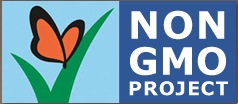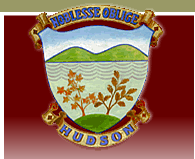A letter to a Mayor: We are writing letters to all mayors and councillors of all municipalities of British Columbia, requesting them to vote favourably towards declaring the province as GE/GMO free in the Annual General Meeting of the Union of British Columbia Municipalities (UBCM) come september.
I personally have written to six municipalities, one email to each mayor and each councillor of these places. I intend to send many more. There are other volunteers also engaged similarly. We sometimes get a response from them, sometimes not.
Here is a sample:
Dear xxxx,
This letter requests your support for the resolution on genetically engineered (GE, also known as GMO) crops and animals at the 2013 UBCM Convention. The resolution reads:
that UBCM ask the British Columbia government to legislate the prohibition of importing, exporting and growing plants and seeds containing genetically engineered DNA, and raising GE animals within BC, and to declare, through legislation, that BC is a GE Free area in respect to all plant and animal species.
Serious concern has been expressed across BC about genetically engineered crops and animals. To date: 12 municipalities have passed individual resolutions declaring themselves a GE Free zone (Powell River, Salt Spring Island, Denman Island, Nelson, Kaslo, New Denver, Rossland, Richmond, Saanich, Metchosin, Telkwa, City of North Vancouver). At the Association of Vancouver Island and Coastal Communities meeting in April 2013, the same resolution as above was adopted by 51 municipalities. In addition the UBCM has endorsed four resolutions expressing concern about genetically engineered crops in 1999 concerning monopolization of our food supply, 20006 and 2009 concerning mandatory labeling, and 2012 concerning the GE apple.
My concerns about genetically engineered crops and animals are as follows:
Safety Questions
- GE crops are not an extension of traditional breeding methods (or hybridization), they are created by inserting new gene sequences into organisms, often from unrelated species.
- GE crops have not been demonstrated to be safe; the standards for judgment by the Canadian Food Inspection Agency (CFIA) and Health Canada are lax. When the CFIA reviews an application for a novel food, its “evidence” comes from the corporation making the application and this data is kept secret. There is no independent testing of GE crops or animals in Canada, so the bottom line is we don’t know if these crops are safe or not.
- Unlike 166 other countries, Canada, has not ratified nor put into effect the articles of the Cartagena Protocol which provides guidelines to be adopted for placing rigorous safety checks before GMO is introduced into a region and an environment. As a result, there are insufficient safeguards at the federal level against damage to health and environment through GMO.
Corporate control
- GE crops are about making profits for companies, often large multinationals. Five agricultural biotechnology corporations now control most of the technology needed to develop GM crops, as well as the agrochemicals and crop germplasm and seeds.
- GE seeds are patented which allows companies to take control over living organisms.
Pollen drift
- Contamination of non-GE crops by GE crops is inevitable
- Some species, such as canola, cross-pollinate more easily than others. If you are next to a farm growing GE canola it is impossible to grow non-GE canola because of contamination from GE pollen.
- The same is likely with some of the GE crops that have recently been approved or are now being developed, for example the GE alfafa (recently approved) GE apple (under development). This will lead to significant economic loss for organic farmers, who use alfalfa as a rotational crop.
- Now GE alfalfa has been approved it will make growing conventional and organic alfalfa impossible over the long term.
There is consensus across British Columbia that we urgently need to consider other possibilities than GE crops, and to support farmers transitioning away from growing GE crops to sustainable farming practices.
May I recommend three important sources of information on GE crops and animals?
- The first is GMO Myths and Truths, a synthesis of 600 scientific studies carried out by three geneticists, and published in 2012. http://earthopensource.org/index.php/reports/58
- The second is a TED talk given by geneticist Dr. Thierry Vrain, who formerly worked as a Federal spokesperson for GE crops but, after analysis of recent studies, is seriously concerned about their health and environmental impact, which can be found at: http://www.youtube.com/watch?v=RQkQXyiynYs
- The third is an expert panel report prepared by the Royal Society of Canada on request received from Health Canada, Canadian Food Inspection Agency and Environment Canada, on the future of Food Biotechnology. The report stresses on the need for precaution and conducting rigorous and independent testing of GMO for health and environmental effects before they are to be approved. These recommendations are not being followed. http://rsc-src.ca/sites/default/files/pdf/GMreportEN.pdf
I hope I can count on your support in this crucial matter. Should you have further questions, I shall be more than happy to answer them on phone or face to face.
Sincerely,
Tony Mitra
No need to follow USA on GMO issues:
I have been observing the unfolding situation in Canada with regard to GMO for some years now. Initially, I used to sign petitions and consider that as the discharge of my civic duty. I have seen how those discharge of our civic duty failed to stem the rot.
Of late, I have been questioning myself, ourselves, and the methods used so far to keep the Canadian environment clean and our food healthy and our lives less contaminated by unnatural substances. Along with that, I have come to question the deep link Canadians have with Americans, on the issue of GMO.
I used to live in the US for many years before I migrated to Canada. While being fond of both, I have one critical comment to make about the US when it comes to GMO. By far the majority of the corporations producing GMO and agricultural toxins are from the US. US has, again, by far the most number of GMO being grown there. US has been feeding GMO to its people for the longest time and in the widest scope. Americans have been exposed to GMO more than any other nation on the planet. USA has not yet allowed GMO to be labelled in the food stores, nor set up mandatory independent tests on the safety of GMO. USA has systematically refused to sign or ratify any of the international conventions of protocols when it comes to GMO and its potential hazards.
For all these reasons – USA is the very worst place to be in this entire planet, if one wishes to keep GMO away from his/her dinner plate.
And, American people, with all due respect, have not been able to do anything worth bragging about – when it comes to pushing back at the corporations that enjoy total control of the executive, legislative and judiciary branches of the Government as well as the media.
And Canada of late has been busy trying to swallow the “Copy Americans” pill in many ways, particularly on GMO.
In the process, Canada has tarnished its stellar image of the past of being environmentally and socially conscious nation. Things have gone so bad that the rest of the world now laughs at Canada as an insignificant poodle of USA when it comes to GMO, climate change and such.
Therefore, taking example from USA, in my mind, is trying to reproduce the failures of the American people of keeping their lands free of dangerous chemicals and transgene crops.
The solution cannot be found by copying somebody. The solution has to be found by sitting outside of the box and thinking Canadians. Americans cannot solve Canada’s problem, not that the US is at all interested in it. Likewise, Europe, or even Ottawa, cannot solve these problems. It is a problem that needs involvement of the people, and novel methods to deal with.
I often hear, in Canada, with regard to motions to label GMO – about waiting for Americans to first label it. Without that, Canada has no chance of getting its GMO labelled. I find this statement not only unacceptable, but tantamount to capitulation to American hegemony.
If labeling is desired by the people – they must follow this up with their respective governments regardless of what the people of US do.
Canada does not, and should not, wait for the US, or any other country, to take the lead in food security.
Canada is supposed to be a free and independent country. Its people need to mull over the definition of “independence”.
Think outside the box. Observe what is happening in the US, but give much more weightage to other nations that are doing a whole lot better than the US on this issue.
If you have to follow examples – at least try to find the best example to follow, instead of the worst one.
This is not to disrespect either American or Canadian or any other people.
LINKS:
![]() Monsanto’s GMO Killer Seeds: Profits Above Human Health. This is a recent article from Global Research, dated May 26, 2013. Click on the image for the link.
Monsanto’s GMO Killer Seeds: Profits Above Human Health. This is a recent article from Global Research, dated May 26, 2013. Click on the image for the link.
 The Non-GMO Project is a non-profit organization committed to preserving and building sources of non-GMO products, educating consumers, and providing verified non-GMO choices. Shared belief is that everyone deserves an informed choice about whether or not to consume genetically modified organisms.
The Non-GMO Project is a non-profit organization committed to preserving and building sources of non-GMO products, educating consumers, and providing verified non-GMO choices. Shared belief is that everyone deserves an informed choice about whether or not to consume genetically modified organisms.
![]() Genetically modified (GM) crops are promoted on the basis of a range of far-reaching claims from the GM crop industry and its supporters. They say that GM crops:
Genetically modified (GM) crops are promoted on the basis of a range of far-reaching claims from the GM crop industry and its supporters. They say that GM crops:
- Are an extension of natural breeding and do not pose different risks from naturally bred crops
- Are safe to eat and can be more nutritious than naturally bred crops
- Are strictly regulated for safety
- Increase crop yields
- Reduce pesticide use
- Benefit farmers and make their lives easier
- Bring economic benefits
- Benefit the environment
- Can help solve problems caused by climate change
- Reduce energy use
- Will help feed the world.
All these are false claims – as explained in GMO Myths and Truths.
Thanks.



